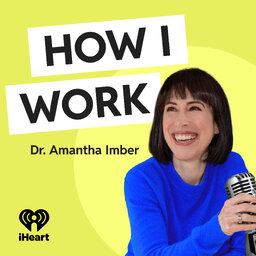My Favourite Tip: Nick McKenzie - An unusual ice breaker
Among great thinkers, the long walk or run is nothing new. Philosophers, artists, novelists and world leaders have long espoused the value of solitude for working through thorny problems.
Award-winning investigative journalist Nick McKenzie is no different. Whether he’s stuck in a tough patch of writing, or trying to figure out his next move in a delicate investigation, running alone often leads to the solution.
But Nick doesn’t always run alone. In fact, he’s turned running into one of his favourite ways to connect more deeply with his contacts, sources and colleagues. The initial conversations he has with sources can be tense - usually, they’re risking a great deal to help him with his work. So getting together, out of business attire and into sweaty neon workout gear, and going for a short run helps to break the ice and bring guards down on both sides…
Connect with Nick on Twitter or on his website.
You can find the full interview here: Award-winning journalist Nick McKenzie on death threats, confirmation bias and the power of insecurity
***
My new book Time Wise is out now. You can grab a copy here.
Connect with me on the socials:
If you’re looking for more tips to improve the way you work, I write a fortnightly newsletter that contains three cool things I have discovered that help me work better, which range from interesting research findings through to gadgets I am loving. You can sign up for that at http://howiwork.co
Visit https://www.amantha.com/podcast for full show notes from all episodes.
Get in touch at amantha@inventium.com.au
CREDITS
Produced by Inventium
Host: Amantha Imber
Sound Engineer: Martin Imber
 How I Work
How I Work


